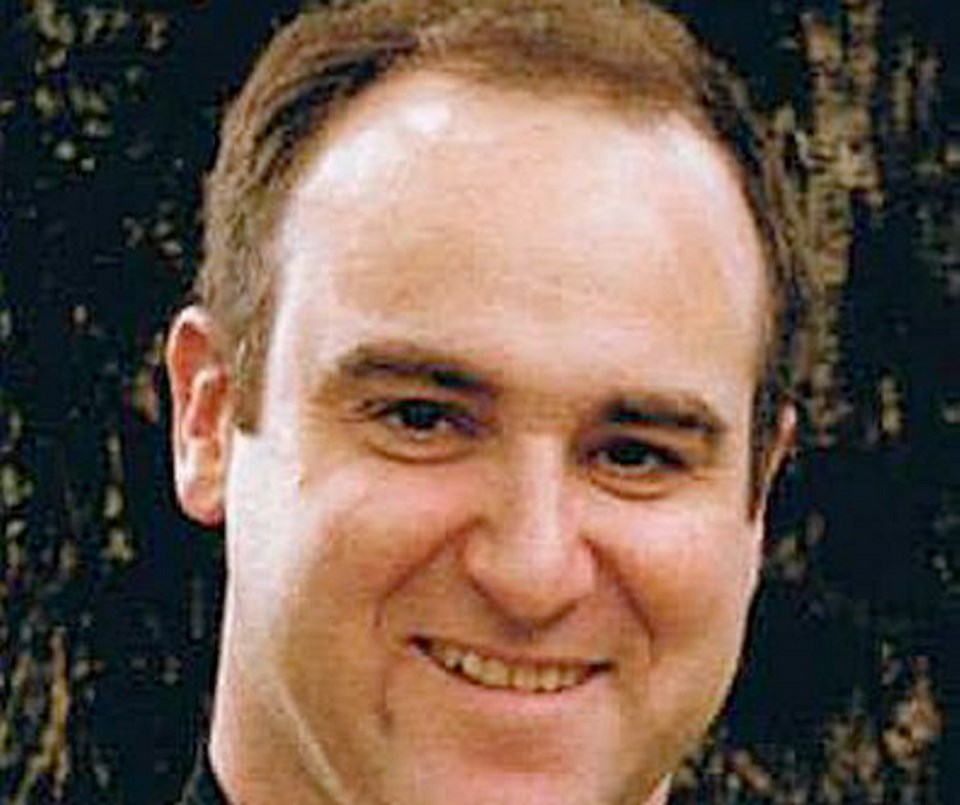The Parole Board of Canada has been ordered to review its decision to deny day parole to a Saanich man convicted of killing a friend’s mother and grandmother for inheritance money.
Derik Lord appealed the parole board’s decision on the grounds that his risk assessment was unfair and that the parole board did not give enough consideration to his needs as an Indigenous offender.
Lord, now 47 and married with a son, discovered and embraced his Métis heritage in prison.
He continues to claim he was wrongly convicted and is innocent of the 1990 murders of Sharon Huenemann, 47, and her mother, Doris Leatherbarrow, 69.
Lord and David Muir killed the women after Mount Douglas Secondary School classmate Darren Huenemann promised them part of a $4-million inheritance.
Lord and Muir, then 17, went to Leatherbarrow’s home in Tsawwassen on Oct. 5, 1990, and were invited in for dinner. They bludgeoned the women with a crowbar and slit their throats. Lord and Muir then ransacked the house to make the killings look like a robbery, taking cash from the dead women’s purses.
In 1992, Lord, Muir and Huenemann were convicted of first-degree murder and sentenced to life in prison.
Lord and Muir were both eligible for parole after 10 years because they were young offenders.
Muir, the only one of the three to admit his role in the killings, has been on full parole since 2003.
Huenemann, who tried unsuccessfully to escape from prison in 1995, remains in custody. In 2017, after serving 25 years of his life sentence, he applied for an escorted temporary absence, but was turned down.
Lord was transferred to a minimum-security institution in 2017.
In September, he applied for day parole, which would allow him to live at a community residential facility and work at a camp in northern B.C.
At the hearing, the board considered the fact that Lord has been in prison for 27 years and had no criminal history when he committed the murders. He completed high school in prison and has taken escorted temporary absences, as well as two 120-day work releases at the camp in northern B.C. No concerns have been raised about his behaviour in the community.
However, the board was concerned that Lord has not taken any correctional programming for nine years, relying instead on the cultural practices of his Métis heritage.
In its review of Lord’s file, the appeal division found that the parole board did not give enough weight to culturally relevant interventions or to the opinion of Indigenous elders when assessing Lord’s progress. The appeal division concluded that the board should have considered how Lord’s release plan was responsive to his needs as an Indigenous offender.
A 2019 psychological assessment found Lord was at low to moderate risk for violent reoffending, but that his issues with insight, empathy and responsibility for the crime increase his risk for violence.
The appeal division found it was unreasonable of the board to weigh his risk factors as negative. It believes Lord has made progress and to further reduce these risks, Lord would have to manage them in the community.
During the September hearing, board members asked Lord if he had considered admitting to the murders.
Lord told them he had talked to a counsellor and determined it would not be in his best interest. “It would be telling a lie,” he said.
Four victim-impact statements, read aloud at the hearing, show the victims’ families oppose Lord’s release and fear retaliation.
“They express their trauma and psychological harm as well as the deep loss they continue to suffer as a result of not only the deaths of their loved ones but your refusal to accept responsibility,” the parole board said in its decision.
Board members noted that Lord displayed no reaction or emotion during the lengthy statements.
Board members found Lord’s manner to be entitled and dismissive.
Although Lord demonstrated regret and remorse for the impact his conviction and incarceration had on him and his family, “at no point” did he acknowledge the pain of the victims — an acknowledgment that would not require a confession of guilt, the board wrote in its decision.
“The lack of empathy you demonstrated is consistent with psychological reports that point to deficits in your capacity to consider the impacts of the murders on the victims’ family members and loved ones.”
In the end, the parole board found the negative aspects of Lord’s case outweighed the positive. The board said it was concerned with the level of harm that could occur if Lord were to reoffend. It concluded that his release on day parole would constitute an undue risk to society.
The Sept. 10, 2019, decision will remain in effect until the new review has been concluded.



